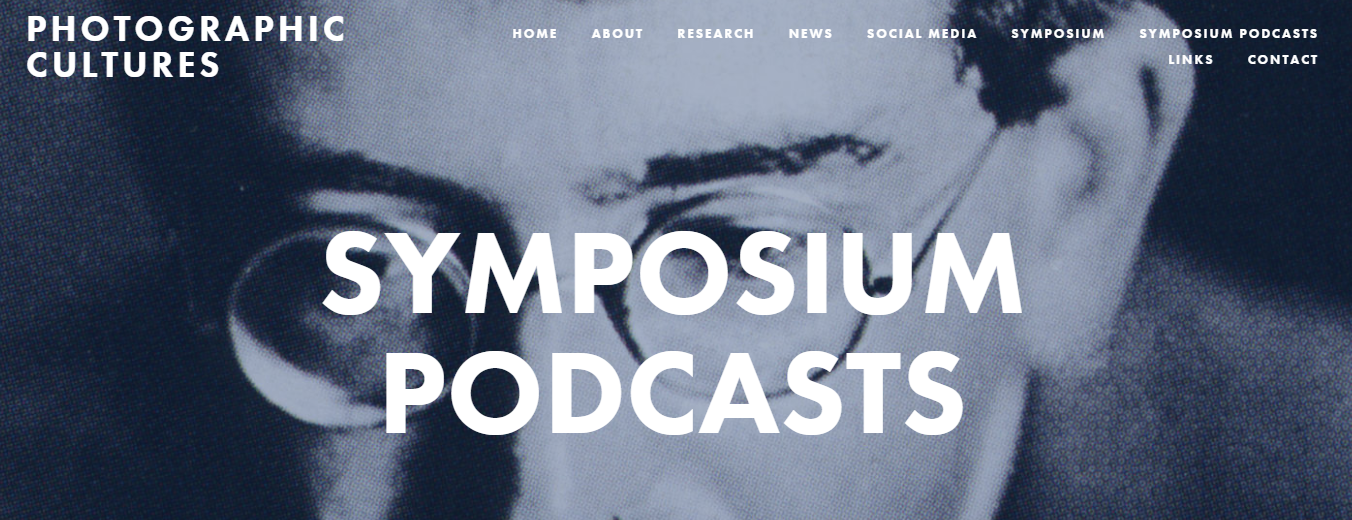 The Photography.Ontology Symposium held earlier this year in Sydney has made the keynote talks available as podcasts.
The Photography.Ontology Symposium held earlier this year in Sydney has made the keynote talks available as podcasts.
Download or listen via this link http://www.photographiccultures.com/podcasts/
Professor Shawn Michelle Smith Looking Forward and Looking Back: Rashid Johnson and Frederick Douglass on Photography
This talk was a key note address for the 2016 Photography.Ontology symposium that took place at the University of Sydney on 2 June 2016.
Professor Smith considers Frederick Douglass’s propositions about the social power of photography. Looking back at Douglass’s lecture “Pictures and Progress” through the lens of contemporary artist Rashid Johnson’s homage to the nineteenth-century orator, the talk examines Douglass’s surprising celebration of photography as an objectifying medium. Douglass saw the persistence of photographs as both a conserving and a conservative force, and Johnson’s self-portrait after Douglass testifies to that doubled dynamic. But Douglass also found progressive power in the technology’s capacity to alienate the self, an unexpected position for the formerly enslaved. The talk explores Douglass’s complicated embrace of photography as a medium of objectification as well as progress, as a link to the past as well as the future.
Professor Andrés Mario Zervigón Photo Profusion and Walter Benjamin’s Optical Unconscious in the Weimar Era
Closing Address for the Photography.Ontology symposium held at the University of Sydney on 2 and 3 June 2016.
ABSTRACT
The last 30 years have seen a great deal of enlightening scholarship on Benjamin’s optical unconscious. Yet much of this work expands well beyond photography, the actual subject of Benjamin’s formulation. This talk places the medium and its historically specific conditions at the center of renewed inquiry into this topic. It focuses on the multi-faceted concern around 1931 that photography had broken its modernist and populist promise to reveal unseen worlds for the good, teach rational modes of perception and operate as a straightforward means of enlightenment. Instead, photographic images in these years seemed fundamentally flawed by their great profusion, the commercial and political conditions that generated this flood, and the very contingency of any one image. The talk proposes that Benjamin acknowledged these shortcomings and responded by assigning the medium’s revelatory agency to the subjective realm of the unconscious where contingency played the very most important role in perception.
ABOUT THE SPEAKER
Andrés Mario Zervigón is Associate Professor of the History of Photography at Rutgers, The State University of New Jersey. He is author of John Heartfield and the Agitated Image: Photography, Persuasion, and the Rise of Avant-Garde Photomontage (University of Chicago Press, 2012) and coeditor with Tanya Sheehan of Photography and Its Origins (Routledge, 2014). His current book projects include Die Arbeiter-Illustrierte Zeitung — The Worker’s Illustrated Magazine, 1921-1938: A History of Germany’s Other Avant-Garde, for which he received a CASVA Senior Fellowship (2013-14); Photography and Germany, for the Reaktion Books Exposures series; and Photography and Doubt, which he is co-editing with Sabine Kriebel (Routledge, 2016).
